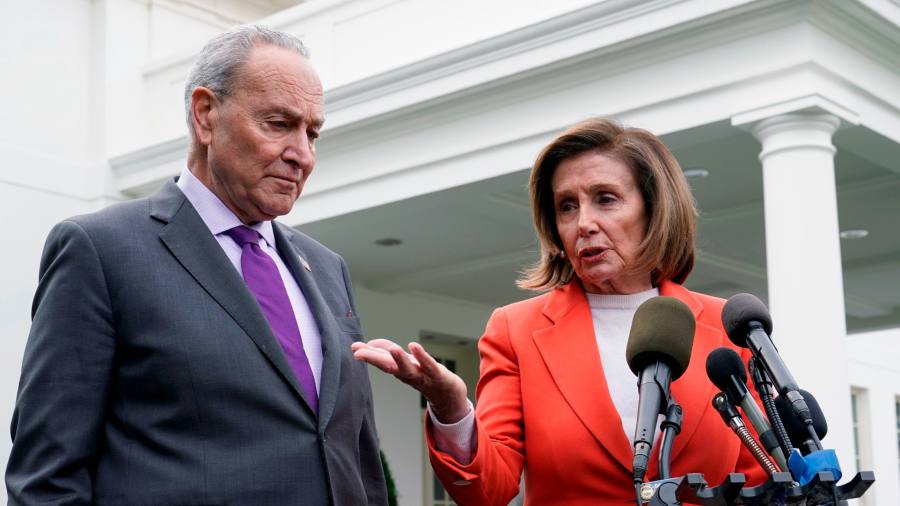
The US Congress is preparing to take up legislation to avert a rail strike and prevent major disruptions to supply chains and the economy heading into the holiday shopping season.
Nancy Pelosi, the Democratic House speaker, said the House would take up the measure as early as Wednesday before sending it to the Senate. President Joe Biden said he was “confident” Congress would pass the bill.
“It’s not an easy call, but I think we have to do it. The economy is at risk,” Biden said after meeting with congressional leaders from both parties at the White House on Tuesday.
Pelosi, Chuck Schumer, the Democratic Senate majority leader, and Mitch McConnell, the Republican leader in the Senate, said they were ready to pass the fix quickly to avert a strike.
“I don’t like going against the ability of the unions to strike, but weighing the equities, we must avoid a strike,” Pelosi said.
Political and business leaders are growing increasingly worried about the fallout from a potential strike, which could happen as early as December 9.
However, attempts to avert the strike threaten to undermine Biden’s campaign pledge to be the most “pro-union” president of recent times.
“A railroad strike would be bad,” Robert Reich, a professor at the University of California, Berkeley, and former US labour secretary in the Bill Clinton administration, tweeted. “Congress prohibiting one would be worse.”
In September, the White House brokered a tentative pay deal that was supported by union leaders and the railway companies after weeks of intense negotiations.
However, it was rejected by the workers in four out of 12 affected unions, leading to the prospect of a paralysing strike.
Workers have complained of chronic understaffing and erratic shift scheduling, while demanding better pay and conditions as rail carriers generate substantial profits. Freight rail has grown in importance amid cargo ship backlogs and a shortage of truck drivers.
If Congress were to enforce the contract with legislation, it would be the first such step taken by lawmakers to avert a rail strike since George HW Bush’s presidency in 1992.
Almost 450 business groups, led by the US Chamber of Commerce, wrote to congressional leaders this week urging them to “take immediate steps to prevent a national rail strike and the certain economic destruction that would follow”.
The business groups cited estimates from the Association of American Railroads that a stoppage could cost the economy more than $2bn a day.
“A rail strike, coupled with historically high levels of inflation, could wreak financial havoc and inflict catastrophic harm to American businesses, workers, consumers and the US economy,” Matthew Shay, the president and chief executive of the National Retail Federation, said in a statement.
He added: “We are in peak holiday shopping season, and it is essential that retailers and other businesses are able to rely on these vital supply chain partners.”
The threat of a strike in September prompted interruptions in the delivery of fertilisers, chlorine and other products. Now businesses fear further disruptions to food deliveries and retail supplies during the peak holiday shopping season.
Additional reporting by Taylor Nicole Rogers